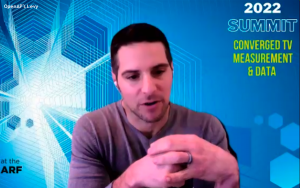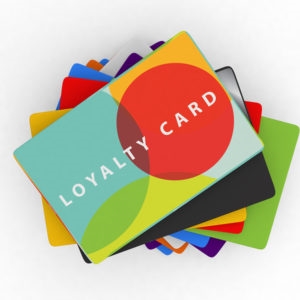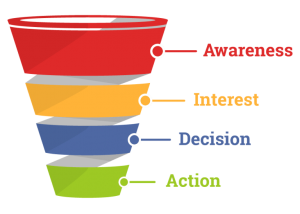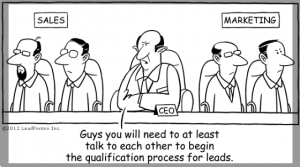So your content is getting a lot of buzz — but is it leaving a lasting impression? Columnist Christoph C. Cemper shows how to look beyond the noise and find the metrics that really matter.

Digital marketing is powerful for getting instant feedback on marketing activities, and content marketing creates long-term value for us marketers. But are we measuring the full success of our content marketing? Or are we narrowly focusing on the wrong metrics?
Did Our Content Resonate? Did Users Engage?
The main question every marketer needs to answer is, “Did our content resonate with the audience?”
Looking at common metrics such as likes, shares, tweets, views, and so on measures distribution. But wide distribution doesn’t necessarily mean you resonated with your audience by affecting their mindset.
Just because your clever article or professional video appeared before your audience, it doesn’t mean they engaged with it. It’s just there, one swipe or click away from being ignored. But once they pause long enough to let the video play or start reading the article, that’s when real resonance begins.
That engagement is what you should measure to determine the real impact of every piece of content.
Real User Engagement Isn’t Just Buzz
Likes and tweets are great for distribution — and it feels good to see those metrics climb — but they’re volatile and cannot be compared to real impact because they cannot accurately measure real engagement by real people. For that, you need to look at other user metrics, such as:
- Comments on a blog post
- Comments on a shared post or tweet
- Downloads of PDFs or SlideShare slides
- Links to your content from their website
Moving Beyond Noise
There is a good reason content marketing was called “Link Baiting” 10 years ago. The goal back then was to get huge distribution on Digg, Reddit and other channels to get massive traffic and (ultimately) great links.
There was a lot of noise, but after the clanging subsided and the likes moved on to the newest shiny post, what was left of all the commotion? Nothing. Impact, not Buzz, must be your main focus. Would you rather have 10,000 likes and zero conversions or 100 likes and 10 conversions?
Real User Engagement Is Impact
The long-term effects of engaged users of your content can be summed up as “Impact.” After all, you made an impact on the person who responded to a tweet or downloaded your presentation. They may have even shared your content with their peers, creating a chain reaction of impact.
If that person left a thoughtful comment, it starts a conversation that keeps your content at the top of their mind. And that can lead to a follow-up, leading to the ultimate impact metric: conversions.
Two Signals From The Same Content
To help you track the right metrics, categorize marketing signals into two groups:
| Buzz | Impact |
|---|---|
|
|
Both groups of signals are important for their roles in the marketing process. In the past, we may have just looked at results in one dimension (Buzz), but we now have to evaluate content based on results it generates in two dimensions.
Use This Two-Axis Metric System To Evaluate Content Marketing
If we think of Buzz and Impact as a two-axis system, it becomes clear that those with a high Buzz and a high Impact are most desirable. But even average Buzz can be profitable with high Impact.

Generating high Impact with average distribution is possible because there are more ways to distribute content than just via social channels. Buzz measurements don’t account for the following distribution methods:
- Email list distribution
- Organic search traffic
- Real-world word of mouth
- Private sharing in chats, discussion groups and one-on-one messaging
- TV or radio advertising — which often results in brand searches on search engines
YouTube As An Example of Low Buzz/High Impact
A good example of high Impact is the massive effect YouTube stars achieve.
In the video below, 19-year-old Bibi describes coloring her hair pink. With this topic — and the cumulative Impact of the following she’s been collecting — she generated 2.2M views, 182,000 likes and nearly 12,000 comments. But she only saw 16 Facebook shares and only six links (some of questionable value).
She is clearly a YouTube influencer. Thanks to her 2.2M subscribers, there’s no need for her to spread her content via the usual social channels we often track. Within her medium, she has high Buzz and high Impact.
Bibi already has a contract with a sponsor, so there’s no point in other agencies contacting her. But what if you could find similar talented video makers on YouTube that have the potential to become superstars but currently lack the Buzz and the following?
While their Buzz is still low, you could sign these potential stars to a contract and set about developing them using advertising, Buzz-magic and a community manager. This could generate a star that you can then use for marketing.
Video marketing is a different game from content marketing, but I see similar patterns on SlideShare.
SlideShare Can Make A Real Impact On Users
Skimming through an online slideshow seems outdated in our age of videos and GIFs, and yet SlideShare remains a very effective way to have Impact with a certain audience.
Professionals across myriad industries download slides to reuse them in their presentations, redistribute them in private circles, or just review them to bolster their knowledge.
A slide deck from a marketing celebrity with 1M views and 8,000 downloads could be seen as a tremendous success.
However, if a little-known marketing consultant with just 100 followers put up three decks and generated 100,000 views and 80,000 downloads, then this success eclipses the previous example. This no-name is now an Impact superstar. Adding more Buzz would make his success enormous.
Imagine what would happen if you gave this newcomer the right distribution, or if you built upon his idea and shared it with a much wider audience. That could easily yield even more Impact.
Nurture Buzz And Impact
Content marketers can learn and benefit from looking at the full picture of their results — Buzz and Impact. One tells you the health of your distribution, while the other tracks the resonance of your content. Both must be nurtured.
Some opinions expressed in this article may be those of a guest author and not necessarily Marketing Land. Staff authors are listed here.










